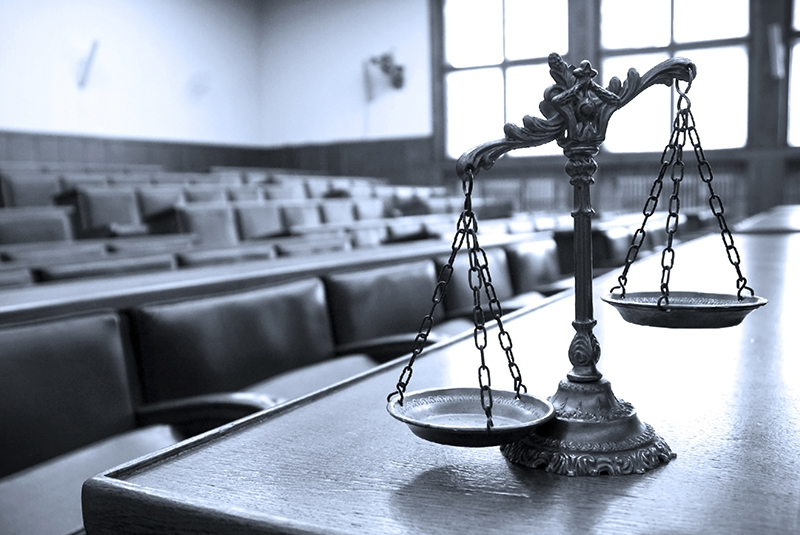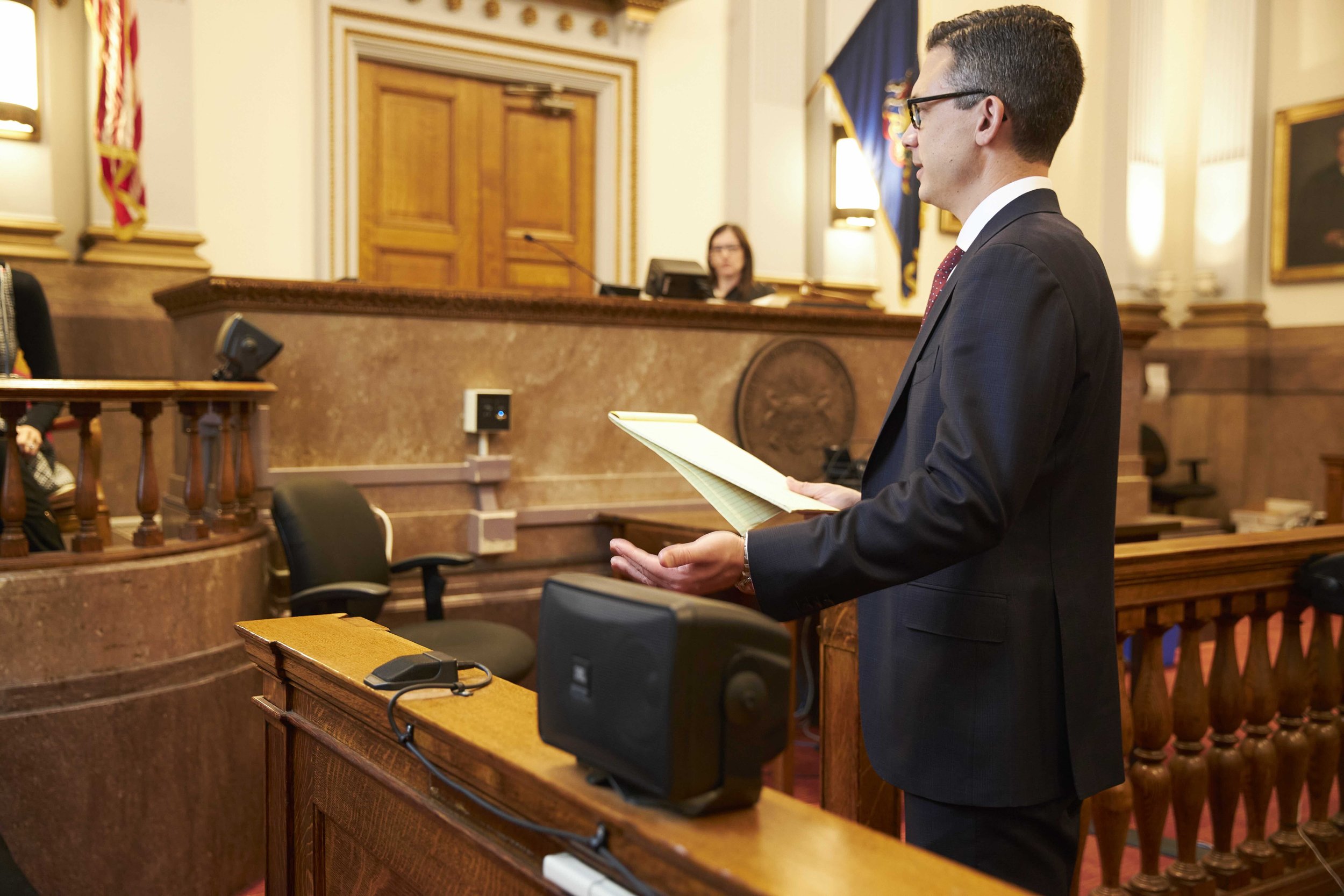Trusted Federal Crime Attorney: Comprehensive Protection Against Federal Allegations
Wiki Article
Debunking the Refine of Federal Appeals: What You Required to Know
Browsing the intricate realm of federal charms can commonly look like going across uncharted waters for those not familiar with the process. Understanding the nuances of appellate court jurisdiction, the complexities of filing a notice of charm, providing a compelling short, and making a convincing oral disagreement are crucial components that can significantly impact the outcome of a case. By unraveling the layers of complexity bordering government allures, people can get a clearer insight into the mechanisms that govern this crucial stage of the lawful system.Recognizing Federal Appeals Refine
Digging into the elaborate realm of the government charms process unveils a systematic and structured journey via the judicial system. Federal allures function as an important mechanism for reviewing choices made by reduced courts. Understanding this process is crucial for any person involved in legal proceedings at the government level.The process typically starts with a celebration disappointed with a reduced court's ruling submitting a notice of appeal. This causes an evaluation by a higher court, where a panel of courts examines the legal debates provided by both events. Briefs detailing the legal thinking behind each party's placement are submitted, and oral debates may be heard to make clear complicated concerns.
The appellate court's decision is based on a complete evaluation of the reduced court's process and the debates offered. As soon as the appellate court reaches a choice, it can verify, reverse, remand, or modify the reduced court's ruling, giving clearness and finality to the legal dispute.
Appellate Court Jurisdiction Explained
Appellate court territory refers to the scope of situations that a particular appellate court has the power to choose and evaluate upon. Unlike trial courts that listen to instances for the first time, appellate courts are restricted to reviewing decisions made by reduced courts.Appellate courts have jurisdiction over details types of instances, generally those involving legal mistakes, step-by-step problems, or concerns of legislation rather than valid disputes. The jurisdiction of appellate courts is usually laid out in statutes and laws that control the court system. Understanding appellate court jurisdiction is important for parties involved in the allures process as it establishes whether a situation is qualified for evaluation and the degree to which the appellate court can interfere in the reduced court's choice.
Declaring a Notice of Appeal
The first action in commencing the government allures procedure involves submitting a Notification of Appeal with the ideal appellate court. This critical file formally alerts the court and the other events included in the situation that the appealing celebration intends to seek a testimonial of the lower court's decision. Filing a Notice of Allure is a stringent procedural requirement that establishes the appellate process in activity.
When preparing the Notification of Charm, it is necessary to guarantee compliance with the particular policies and guidelines of the pertinent appellate court. federal crime lawyer. The document has to commonly consist of information such as the situation name, the reduced court's name, the day of the judgment being appealed, and a concise statement showing the grounds for the appeal

Briefing and Dental Debate
In the appellate process, offering written briefs and participating in oral debates play critical roles in promoting for the appealing party's setting prior to the appellate court. Briefs are extensive legal papers that outline the parties' debates, legal authorities, and evaluation supporting their settings. These created entries supply the court with a thorough understanding of the facts of the case, the pertinent legislation, and why the appealing celebration believes the lower court's decision should be rescinded.Complying with the submission and testimonial of the briefs, dental disagreements her response supply the celebrations a possibility to more clarify their positions, resolve any type of inquiries the appellate courts might have, and emphasize vital points from their written briefs. Oral disagreements are a chance for the lawyers to convince the courts via spoken campaigning for and responses to questions from the bench.
Both the composed briefs and oral debates are crucial elements of the appellate procedure, permitting celebrations to provide their case completely and compellingly before the appellate court. - federal crime lawyer
Receiving the Appellate Court Decision
Upon completion of dental arguments and submission of created briefs, the next critical phase in the appellate procedure entails waiting for the decisive ruling from the appellate court. This duration of anticipation can be loaded with a mix of anxiousness and wish for celebrations involved in the charm. The appellate court's choice is typically delivered in a written format and lays out the court's final thoughts on the lawful problems provided, the reasoning behind their choice, and the judgment made. The time framework for receiving the appellate court's choice can vary, however courts aim to provide timely resolutions. Once the choice is provided, events have to very carefully review the court's ruling to recognize the end result and identify any kind of additional actions that may be required. Whether the appellate court verifies, turns around, or remands the reduced court's choice, comprehending the ramifications of the judgment is essential for all celebrations involved in the appellate procedure. Quickly examining and comprehending the appellate court's choice is essential in navigating the following actions in the lawful proceedings.Conclusion
Comprehending the appellate court jurisdiction, filing a notification of allure, preparing briefs, and offering dental disagreements are all crucial components of this procedure. Ultimately, getting the appellate court decision can supply clarity and resolution to lawful disputes.As we progress from recognizing the federal appeals procedure to studying the details of appellate court jurisdiction, a basic facet comes to light relating to the authority and limitations of these greater courts in the lawful landscape. Appellate court jurisdiction refers to the extent of cases that a specific appellate court has the power to examine and make a decision upon. Unlike test courts that listen to situations for the very first time, appellate courts are limited to examining choices made by reduced courts. Recognizing appellate court territory is important for celebrations involved in the charms procedure as it establishes whether a case is qualified for review and the level to which the appellate court can interfere in the lower court's decision.

Report this wiki page